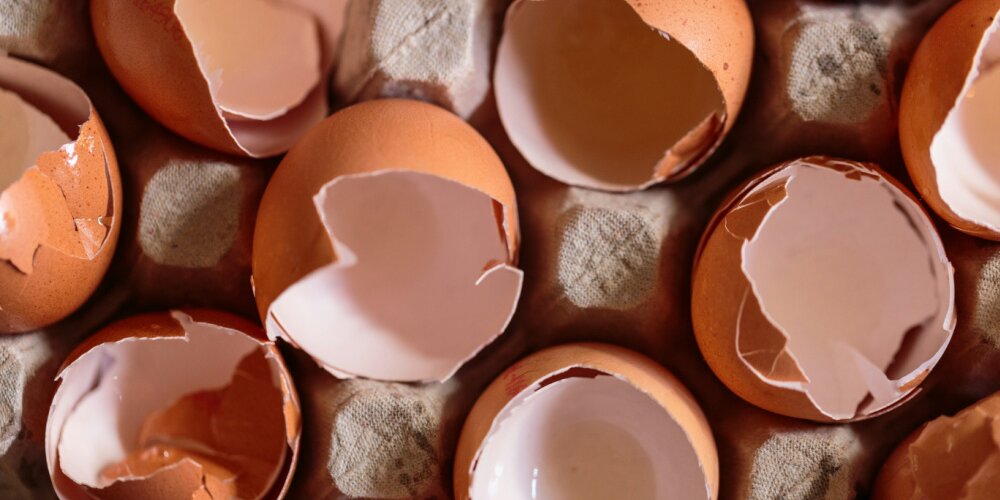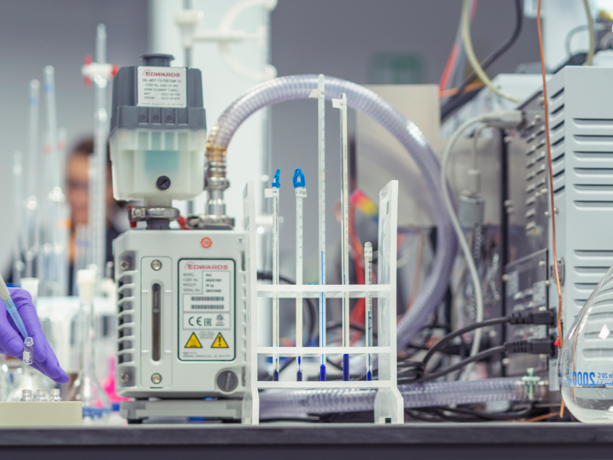Could Eggshells Be the Solution for Greener Rare Earth Element Recovery?

Rare earth elements (REEs) are vital for the production and manufacture of alternative energy solutions, from electric vehicles motors to wind turbine magnets – which has ramped up the demand for these relatively scarce materials.
However, not only is the mining of rare earth elements highly environmentally damaging, but traditional REE extraction processes are chemically intensive. Typical extraction methods involve dangerous, and often toxic, chemicals to separate the elements from their ores (and other substances within the mix).
This is obviously counterproductive when the results of REE extraction are used to create sustainably-minded products – but REE demand continues to grow. Thus, scientists have been exploring new, more sustainable, methods to obtain rare earth elements – like recycling them from REE-rich waste materials.
To wit, a collaboration between researchers from the School of Natural Sciences at Trinity College Dublin and iCRAG, the Irish Science Foundation, has resulted in the development of a new method of extracting valuable rare earth elements – using eggshell waste.
Eggshells have had a variety of uses throughout history; from makeshift skin plasters, to fertiliser, and much more. Now, according to their research, the team have discovered that the calcium carbonate, or calcite, found in eggshells can effectively absorb REEs and separate them from water.
During the course of the research, the team tested the eggshells within a mixed solution of rare earth elements in order to study their effectiveness across a broad range of temperatures (25℃ to 205℃) and time periods (three hours right up to three months).
At lower temperatures, the calcite within the eggshells acted as ‘a mixed organic-inorganic adsorbent and absorbent’ which helped to diffuse and trap the REEs. At the higher end of the temperature scale, the eggshells were shown to disintegrate entirely, acting as a sacrifice upon which rare earth hydroxycarbonates could be formed.
Both of these end results are valuable, suggesting that this innovative approach to the problem of element scarcity and harmful extraction practices could bode well for the future of the green energy industry in a variety of ways.
For one, Dr Remi Rateua, lead author of the paper, explains that ‘this study presents a potential innovative use of waste material that not only offers a sustainable solution to the problem of rare earth element recovery but also aligns with the principles of circular economy and waste valorisation’. This is because not only would the method effectively recycle mineral waste into something useful (REEs), but it also finds a use for food waste.
Within their paper, the team notes that the food industry produces a high volume of eggshell waste. There were an estimated 1.7 trillion eggs produced worldwide in 2021, which potentially works out at approximately 10 million metric tons of eggshell calcite lost per year (of which a large proportion heads to landfill).
Recycling mineral-rich industrial waste into value-added products also helps to reduce the damage attributed to harmful mining practices and chemicals used for rare earth element extraction. Professor Juan Diego Rodriguez-Blanco, the Principal Investigator, further explains that ‘by transforming eggshell waste into a valuable resource for rare earth recovery, we address critical environmental concerns associated with traditional extraction methods and contribute to the development of greener technologies.’
Problems with your materials or components?
Then we may have the solution. At The Lab, we are continually investing in the expertise of our materials testing teams, and the equipment with which they can conduct their analyses. This allows our experts to continually achieve accurate and reliable results for you to learn from.
To find out how our team can help you and your business, arrange a meeting today. Contact us online, or call 0151 652 0641 for friendly, no-obligation consultation.
Discover our range of materials testing services now
For more interesting industry insights, information and the latest news, explore The Lab’s News and Knowledge Hub…
New Technique Uses Paper Waste to Improve Carbon Reduction Reactions | Can Studying Bubbles Lead to More Efficient Biofuel? | Scientists Produce Glycerol Carbonate From Industrial Waste Materials
- Date
- 02/10/2024
